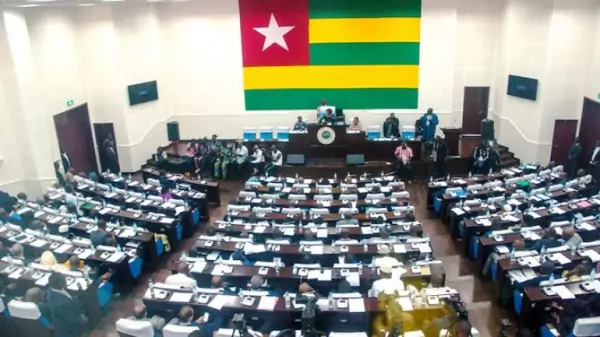Togolese lawmakers have approved a new constitution proposed by members of the ruling party, marking a transition from a presidential to a parliamentary system in the West African nation.
The country’s opposition, which boycotted the previous legislative elections in 2018 and recently criticised irregularities in the electoral census, holds minimal representation in the national assembly.
A significant change introduced by the new constitution is that members of parliament will elect the president of the republic for a single 6-year term.

Additionally, the position of ‘president of the council of ministers’ has been established, granting the holder full authority and power to oversee government affairs. The president of the council of ministers will be either the leader of the party that secures the majority in legislative elections or the leader of the winning coalition of parties. Their term will also span six years.
Members of parliament will now be elected through universal, direct suffrage for a renewable term of six years.
The adoption of the new Constitution occurred partly through lawmakers whose mandate was set to expire late last year. However, it remains unclear when the changes will take effect.
The upcoming parliamentary election is scheduled for April 20, coinciding with regional elections. Approximately 4.2 million Togolese citizens are registered to vote.
Togo’s recent history has been largely influenced by the Gnassingbe clan, which has held power since 1967.


